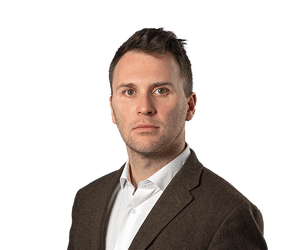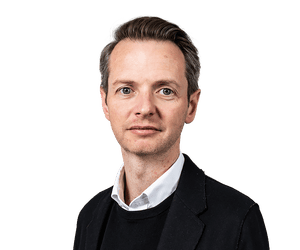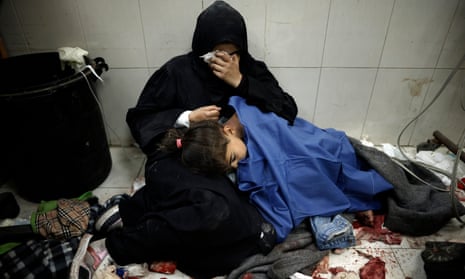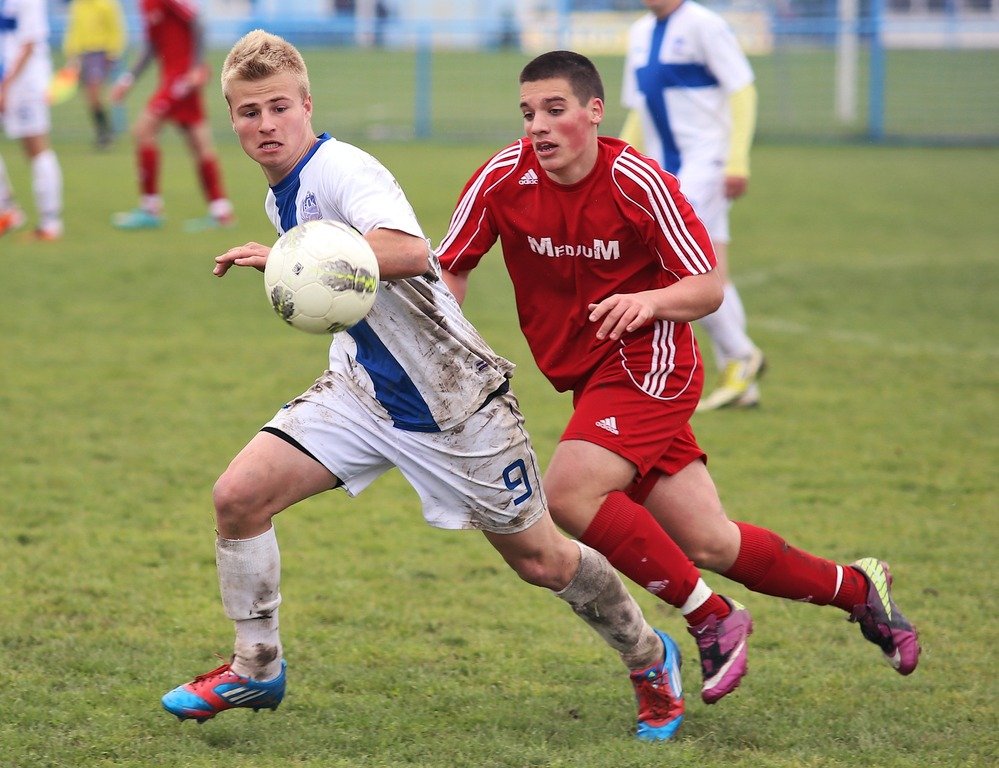Putin says there will only be peace in Ukraine when Russia achieves its goals
Andrew Roth
Putin begins the press conference by saying that Russia’s sovereignty is under threat and that “the very existence of our country without sovereignty is impossible … the whole country cannot exist without sovereignty.”
He is quickly given a question about the war in Ukraine, and Pavel Zarubin, a state television anchor, asks: “When will there be peace?”
“There will be peace when we achieve our goals,” Putin said. “They haven’t changed. Denazification of Ukraine, the demilitarisation of Ukraine.”
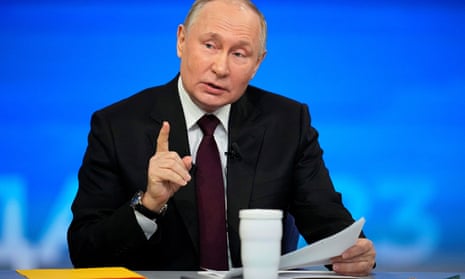
Those are some of the more aggressive terms that Putin used at the beginning of the war in Ukraine, before Russia suffered a series of military setbacks last year. But with the failure of Ukraine’s counteroffensive, Putin indicates that Russia is still seeking a full capitulation.
Putin is also asked if there is to be a new round of mobilisation in Russia, to which he says that Russia has enough men under arms and willing conscripts at the moment to raise the size of the Russian armed forces to 500,000 by the year’s end.
“Why do we need a mobilisation? There’s no need for a mobilisation today.”
Putin also claimed that military aid to Ukraine from the west was drying up and that the country would soon run out of foreign arms to resist the Russian invasion.
“Ukraine produces nearly nothing, everything is coming from the west, but the free things will run out some day, and it seems it is already happening,” he says.
Key events
Here are the latest images coming across the wires from Ukraine and elsewhere:
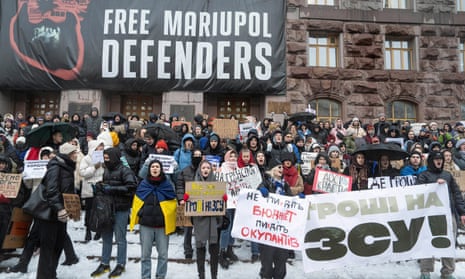
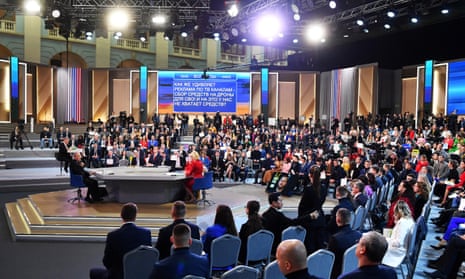
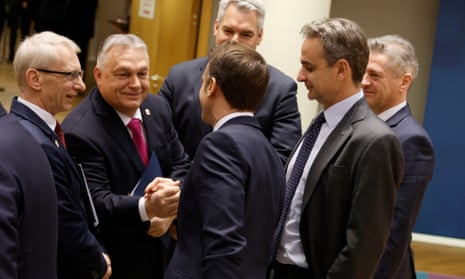
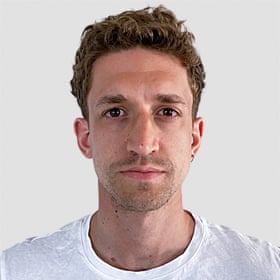
Pjotr Sauer
Putin’s annual press conference shows that the Kremlin is eager to place the war in Ukraine at the centre of the event, with many questions for Putin about the conditions of Russian troops on the frontlines.
In one question, a woman in military fatigues flanked by two men holding guns complains about not getting benefits while fighting in Ukraine, an issue Putin promises to fix.
In another question, a former Russian soldier who fought in Ukraine as part of an unnamed private military group says that he was not given a veteran status on his return to Russia.
Without mentioning the Wagner group, Putin says he will make sure that former mercenaries are respected, adding that he knows people from “private military companies” who died fighting for “Russian interests.”
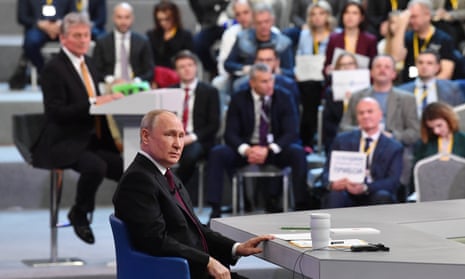
‘Real risk’ Vladimir Putin will not stop with Ukraine if he achieves military victory, says Nato chief
There is a “real risk” that the Russian president, Vladimir Putin, will not stop with Ukraine if he achieves military victory there, the Nato chief, Jens Stoltenberg, said on Thursday.
That prospect is why Ukraine’s Nato allies must continue supporting Kyiv militarily, Stoltenberg stressed:
If Putin wins in Ukraine, there is real risk that his aggression will not end there. Our support is not charity. It is an investment in our security … The only way to reach a just and lasting solution is to convince President Putin that they will not win on the battlefield. And the only way to ensure that President Putin realises that he is not winning on the battlefield is to continue to support Ukraine.
The Nato secretary general’s comments came as support for further aid to Ukraine faltered in the United States and the European Union as a result of internal political manoeuvring.
Opposition Republicans in the United States have opposed to providing more US military aid, while in the EU, Hungary has held up approval of a €50bn ($55bn) package to stabilise Ukraine’s war-hit finances over the next three years.
EU leaders were gathered in Brussels on Thursday for a summit at which aid to Kyiv and Ukraine’s bid to one day join the bloc were the headline issues.
EU countries should give Ukraine and other countries such as Moldova and Georgia looking to enter the European Union their support as they meet the criteria set for accession, the German chancellor, Olaf Scholz, said before a meeting of the bloc’s leaders on Thursday.
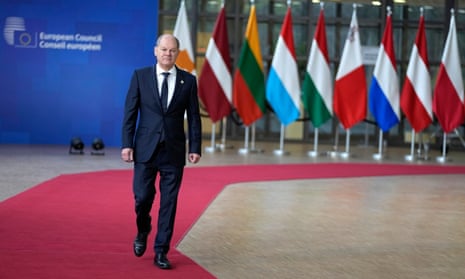
“Especially in the case of Ukraine, it is a necessary sign we support their activities to meet all the measures that we ask them to meet,” Scholz said before the meeting, where the decision to open accession talks with Ukraine is one of the main issues.
Putin blames West for ‘spoiling relations’ with Russia
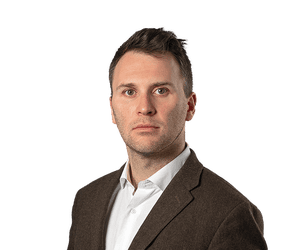
Andrew Roth
Putin has said he is open to repairing relations with Europe and the United States but has also said that Russia has done nothing wrong in its invasion of Ukraine and blamed the west for “spoiling relations” with Russia.
“We didn’t ruin relations with the west,” he said, launching into a long lecture on the Kremlin’s view of Ukrainian history. “They ruined relations with us and they always tried to push us into second or third place ignoring our interests.”
At one point, he adds recounting the history of the 2014 Ukrainian revolution, “they left us no choice in our actions”.
Putin has not made much news today but the Russian leader has hewed an aggressive line, speaking extensively about the war and doing little to show he was pulling back from Russia’s maximalist goals.

He also offered praise for the Hungarian leader, Victor Orbán, and Slovakia’s populist prime minister, Robert Fico. Orban in particular has held up EU aid to Ukraine as he pushes Brussels to release billions of euros in aid held up due to rule-of-law concerns.
“They’re not pro Russian politicians,” he said of Orbán and Fico. “They’re pro-nationalist.”
Decrying the United States’ “imperialist” behaviour, he said: “We’re ready to arrange relations with them … We think the US is an important, needed country in the world. But their imperial politics hamper them.”
Vladimir Putin said Thursday that a total of 617,000 Russian troops are currently fighting in Ukraine. Some 244,000 of them are soldiers who were called up to fight alongside professional Russian military troops, according to the president.
The rare detail on Moscow’s military operation in Ukraine came during Putin’s year-end press conference Thursday that the Kremlin doesn’t need a second wave of mobilisation of reservists.
He said 1,500 men were being recruited into the army every day across the country. As of Wednesday evening, he said a total of 486,000 soldiers had signed a contract with the Russian military.
Wall Street Journal reporter Evan Gershkovich, arrested in Russia on espionage charges, lost an appeal on Thursday to be released from jail and will remain in custody at least until 30 January.
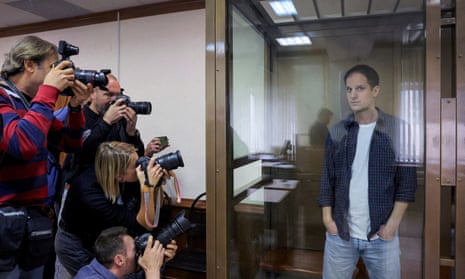
Gershkovich was arrested on 29 March in the Urals city of Yekaterinburg on charges of espionage that carry up to 20 years in prison.
Gershkovich, 31, is the first American journalist to be held in Russia on spying charges since the end of the cold war. He was detained in the Urals while on a reporting trip at the end of March.
Russia’s FSB security service has claimed he was collecting state secrets about the country’s military-industrial complex. Gershkovich and the Wall Street Journal have denied the charges.
Read more on the case here:
At the EU summit on Thursday Hungary’s prime minister, Viktor Orbán, told reporters that Ukraine did not yet meet the “merit-based” criteria to join the EU and that the issue should not even be discussed.
“There is no reason to discuss anything because preconditions were not met,” Orbán said, citing the European Commission’s advice to leaders on Ukraine’s reform progress.
“We’re not going to move away from this,” he warned, according to AFP.
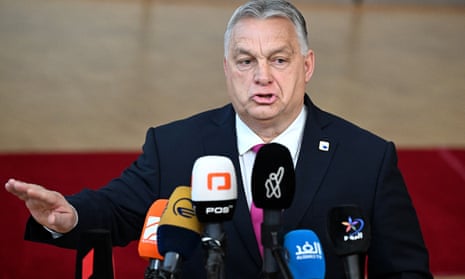
The European Commission has advised the 27 leaders that Ukraine is making good progress towards enacting the necessary political and judicial reforms to meet EU standards. Most EU leaders want this week’s summit to approve the start of formal membership talks, in a sign of solidarity with Ukraine almost 22 months after Russia launched an all-out invasion.
They also want to approve a €50bn ($54bn) four-year financial aid package for Kyiv.
But any decisions must be unanimous and Orbán said that firstly any aid would have to be enacted outside the EU budget and secondly he would not allow membership talks to begin.
“Enlargement is a merit-based, legally detailed process which has preconditions,” he said.
“We have set up seven preconditions and even by the evaluation of the commission, three out of the seven are not fulfilled. So there is no reason to negotiate membership of Ukraine now.”
Putin says there will only be peace in Ukraine when Russia achieves its goals

Andrew Roth
Putin begins the press conference by saying that Russia’s sovereignty is under threat and that “the very existence of our country without sovereignty is impossible … the whole country cannot exist without sovereignty.”
He is quickly given a question about the war in Ukraine, and Pavel Zarubin, a state television anchor, asks: “When will there be peace?”
“There will be peace when we achieve our goals,” Putin said. “They haven’t changed. Denazification of Ukraine, the demilitarisation of Ukraine.”

Those are some of the more aggressive terms that Putin used at the beginning of the war in Ukraine, before Russia suffered a series of military setbacks last year. But with the failure of Ukraine’s counteroffensive, Putin indicates that Russia is still seeking a full capitulation.
Putin is also asked if there is to be a new round of mobilisation in Russia, to which he says that Russia has enough men under arms and willing conscripts at the moment to raise the size of the Russian armed forces to 500,000 by the year’s end.
“Why do we need a mobilisation? There’s no need for a mobilisation today.”
Putin also claimed that military aid to Ukraine from the west was drying up and that the country would soon run out of foreign arms to resist the Russian invasion.
“Ukraine produces nearly nothing, everything is coming from the west, but the free things will run out some day, and it seems it is already happening,” he says.
A Russian court began on Thursday hearing the appeal of Oleg Orlov, a veteran human rights campaigner and co-chair of the Nobel prize-winning group Memorial, who has been convicted of discrediting Russian forces.
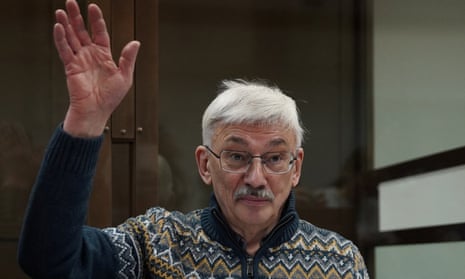
Since Vladimir Putin dispatched Russian forces to Ukraine nearly two years ago, Moscow has jailed or forced into exile the country’s most prominent rights defenders and shuttered leading advocacy groups.
“Some may tell themselves that it is better to be silent. But my entire previous life and my position obliged me not to be,” Orlov told AFP in an interview ahead of his trial.
Orlov was found guilty and fined 150,000 rubles ($1,670) in October. His sentence was relatively light, compared with the long jail terms handed to other critics of the conflict. The 70-year-old denied he was guilty and appealed against the ruling.
But the prosecution, which requested the initial fine, then asked the court to jail Orlov for three years instead.
Prosecutors, who accused Orlov of harbouring “political and ideological hatred” of Russia, had initially requested a fine rather than prison time because of Orlov’s age and health. They had brought charges against him for organising one-man protests and writing an opinion piece in French media.
In the article, Orlov said Russian troops were committing “mass murder” in Ukraine and that his country had “slipped back into totalitarianism”.
His argument was informed by the extensive knowledge of Soviet-era repression that he gained as co-chair of Memorial, an NGO that preserved the collective memory of the Soviet Union. Orlov joined Memorial in the late 1980s when it was being set up to document Soviet-era crimes.
The group went on to become one of the pillars of Russian civil society and received the Nobel Peace Prize in 2022, jointly with a Belarusian human rights advocate and a Ukrainian rights organisation.
Orlov worked on rights abuses in military conflicts, particularly Russia’s two wars in Chechnya in the 1990s. He was part of a group who in 1995 swapped themselves for hostages taken by Chechen fighters and were eventually released. He was abducted, beaten and threatened with execution by a group of masked gunmen in Ingushetia, bordering Chechnya, in 2007.
After serving two years in the mid-2000s on Russia’s presidential human rights council, Orlov became an active opponent to Putin.
Having dedicated much of his life to documenting rights abuses, Orlov remained vocal after the Kremlin launched its fully-fledged assault on Ukraine in February 2022.

Andrew Roth
Vladimir Putin is about to begin a marathon press conference that he will use to boast about his army’s success in the Ukraine war and set the tone for his presidential campaign in next year’s elections, where his victory is a foregone conclusion.
Putin has held similar media events, where journalists or carefully-selected Russians are chosen to ask him questions on national television, for most of his 24 years in power. But the Kremlin cancelled last year’s event after a series of embarrassing military defeats in Ukraine. The resumption of the call-in show – this year with both members of the public and journalists in a single format – indicates the Kremlin is hoping to show that its Ukraine strategy is back on track and that Putin is firmly in control.
In terms of the war, Putin is likely to emphasise the modest gains made by Kyiv during its summer counteroffensive and the difficulties securing a new round of military aid from the United States due to infighting between the Biden administration and the Republican party. The possible reelection of Donald Trump, who has spoken fondly of Putin and is sceptical of US support for Ukraine, will also give Putin a chance to claim that Russia will be able to outlast Ukraine.
In public comments several days ago, Putin said:
They’re running out of (everything), they don’t have their own base … when there is no own base, no ideology of its own, no industry, no money of its own, nothing of its own, then there is no future. And we have (our own).
The event comes just days after Putin announced his reelection campaign to a potential fifth term as president. Many of his rivals, such as Alexei Navalny, are in prison or have fled the country and he is the presumptive victor in an election that is considered neither free, nor fair. Yet the Kremlin is still keen to claim that Putin is broadly popular and uses the event to bolster his bonafides as a problem solver who is in touch with the nation and its people.
Putin is likely to emphasise the resilience of Russia’s economy despite foreign sanctions. He may also seek to turn away from the war slightly and speak more about Russia’s investments in social policy, although many Russians still say they feel that the economy is in decline.
And often, a Russian from a far-flung town will ask for something far below the remit of the president – a renovation of the local playground for instance – and by the end of the show the Kremlin will announce that the work is under way.
Estonia’s prime minister, Kaja Kallas, said on Thursday that the EU has to reach an agreement on Ukraine’s EU accession, adding that Hungary’s prime minister, Victor Orbán, told her he does not see an agreement on Ukraine’s EU accession.
“I just had a talk with Viktor Orbán. He said he does not see an agreement right now,” Kallas told reporters upon her arrival to an EU summit in Brussels.
She said Ukraine has fulfilled the criteria to open accession talks which would take several years.
Here are the latest images coming across the wires from Ukraine and elsewhere:

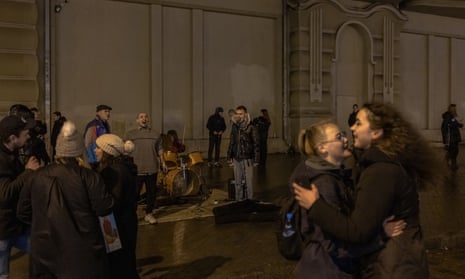
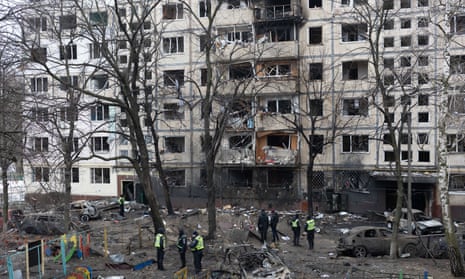
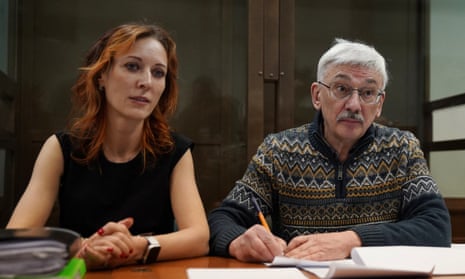
Kyiv says Russia attacked south Ukraine with 42 drones overnight
Ukraine said on Thursday that its air defence systems had downed dozens of Iranian-designed drones launched by Russian forces targeting the southern city of Odesa, in Moscow’s latest overnight barrage that wounded 11 people.
“In total, launches of 42 enemy attack UAVs (unmanned aerial vehicles) were recorded,” the Ukrainian air force said, adding that it had destroyed 41 of the Shahed drones deployed from Russian-controlled territory, including the Crimean peninsula annexed by Moscow in 2014.
Falling debris damaged a dormitory in Odesa, AFP reports. Eleven people including three children were wounded, governor Oleg Kiper said. “Russian devils started the second evening in a row with an attack on Odesa,” he added.
Russia said on Thursday that its air defence systems had downed nine Ukrainian drones headed towards the capital, hours ahead of a highly anticipated news conference from President Vladimir Putin since launching the Ukraine offensive in February 2022.
“On-duty air defence units destroyed and intercepted nine Ukrainian UAVs (unmanned aerial vehicles) over the territory of the Kaluga and Moscow regions,” Russia’s defence ministry said in a statement, blaming Kyiv for the attack.
European Union leaders struggled at the start of a two-day summit on Thursday to keep their two most elementary promises to Ukraine at war intact — to give it the money and wherewithal to stave off the Russian invasion and maintain its hope that one day it will be able to join the wealthy bloc.
And stunningly, the threat to that commitment does not come from outside, but from within, from its increasingly recalcitrant member Hungary, AP reports. The country’s prime minister, Viktor Orbán, came into the summit vowing to both block the plans by his 26 fellow leaders to officially declare that membership negotiations with Ukraine can start, and more pressingly, deny Kyiv €50bn ($54bn, £43bn) in financial aid that the country dearly needs to stay afloat.
The challenge comes at an especially dire time for the Ukrainian president, Volodymyr Zelenskyy, straight off a trip to Washington where his pleas for more aid from the US Congress fell on deaf ears. He was widely expected to come to Brussels to make his case heard here too but there was no official confirmation early on Thursday that he would attend.
“We absolutely have to provide a sense of security on the budget, especially after the disappointment in the United States,” said a high-level EU diplomat who requested anonymity because the summit talks had not yet begun.
Opening summary
Hello and welcome to the Guardian’s live coverage of the war in Ukraine.
Russia’s president, Vladimir Putin, is expected to hold his annual end of the year press conference after cancelling last year’s set-piece event. Russian citizens will phone in their questions along with those asked by journalists. His last news conference was in 2021 amid warnings that Russia was on the brink of sending troops into Ukraine. Putin has limited his interaction with the foreign media since the fighting began in Ukraine.
It comes against the backdrop of an EU meeting with an expected face off against the Hungarian prime minister, Viktor Orbán, as he threatens to veto a massive aid package and start membership talks for Ukraine.
The crunch summit in Brussels – which diplomats fear could drag on longer than the two days planned – comes as fears mount over western backing for Ukraine nearly two years into Russia’s war.
Kyiv is desperately seeking to improve the narrative after Ukraine’s president, Volodymyr Zelensky, failed in Washington to win over Republican lawmakers blocking US support.
But Orbán – Russia’s closest ally in the European Union – stands in the way of Ukraine’s hopes for €50bn ($54bn) in financial aid and progress towards its goal of one day joining the bloc.
Meanwhile, Moscow said it had shot down two drones targeting the Russian capital overnight. No casualties or damage were reported. Separately, the Ria news agency cited Russia’s defence ministry as saying a total of nine drones had been destroyed over the Moscow region and the adjacent Kaluga region. It did not provide a breakdown.
Key developments:
-
Russia’s president Vladimir Putin is expected to hold his annual end of the year press conference on 14 December. The event will include a call-in known as the “direct line”, in which Russians can ask Putin for his advice. “On December 14, Vladimir Putin will sum up the results of the year. It will be a combined format of the direct line and the president’s final press conference,” Kremlin spokesperson Dmitry Peskov told reporters on Thursday.
-
Russia launched a massive missile attack on Kyiv in the early hours of Wednesday in an apparent show of strength, minutes after Volodymyr Zelenskiy met his US counterpart, Joe Biden, for talks in Washington. Ukraine’s air defences shot down all 10 Russian missiles targeting the capital but least 53 people were injured by falling debris.
-
Ahead of Thursday’s EU leaders summit, Zelenskiy said that Orbán had no reason to block Ukraine’s EU membership. “I was very direct … He has no reasons to block Ukrainian membership in the EU. I asked him to tell me one reason … I’m (still) waiting for an answer,” Zelenskiy said about his short encounter with Orban in Argentina on Sunday.
-
Zelenskiy’s chief of staff, Andriy Yermak, also urged EU countries to recognise that Ukraine has “much to offer” the bloc. “Values-wise and ideologically, Ukraine is an indisputable part of Europe – which is precisely why Russia attacked us … Without Ukraine, the ‘Europe’ puzzle cannot come together,” he said.
-
Arriving at the summit in Brussels, Poland’s new prime minister, Donald Tusk, said that “apathy on Ukraine” was “unacceptable”. Poland’s previous government had become embroiled in a row with Ukraine over grain exports but new foreign minister, Radosław Sikorski, also stressed that supporting Ukraine would be a “priority” for the new administration.
-
The five Nordic nations told Zelenskiy during previously unannounced talks in Oslo that they would support his country “for as long as it takes” in its struggle to drive out Russian forces. Together, Norway, Sweden, Denmark, Finland and Iceland have provided aid to Ukraine worth €11bn since Russia invaded in February 2022 and are ready to continue giving extensive military, economic and humanitarian support, the five nations said in a joint statement.
-
Denmark’s government would present a new support package for Ukraine worth €1bn ($1.08bn) to parliament on Thursday, the country’s prime minister, Mette Frederiksen, said at a press conference in Oslo with the Nordic leaders and Zelenskiy in Oslo.
-
Ukraine’s top mobile phone operator, Kyivstar, started restoring voice services to some clients a day after its networks were knocked out by a major cyber-attack, Kyivstar CEO Oleksandr Komarov said, with data and other services to follow. The company, which provides services to more than half of Ukraine’s population, sustained “huge” damage during the attack on Tuesday, Komarov told Reuters, calling it “the biggest cyber-attack on telco infrastructure in the world”.
-
A hacking group believed by Kyiv to be affiliated with Russian military intelligence claimed responsibility for the cyber-attack. A group of activist hackers, or “hacktivists”, called Solntsepyok said in a post on the Telegram messaging app that it carried out the cyber-attack, and published screenshots appearing to show that the hackers had accessed Kyivstar’s servers.


